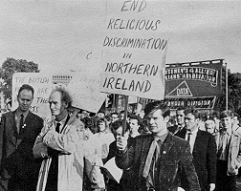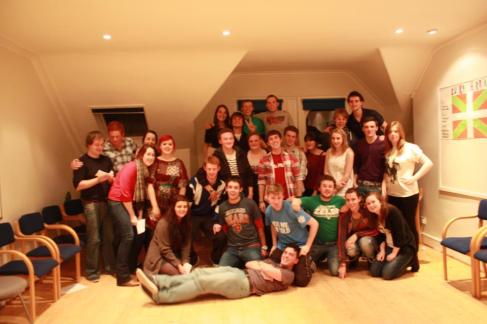“And so even though we face the difficulties of today and tomorrow, I still have a dream.” Martin Luther King Jr delivered his “I have a dream” speech on the 28th of August 1963. His ability to motivate people and his courage to stand up for what he believed in gave me my most obvious example of true leadership during my first week in DC.
By learning more about the Civil Rights movement in America and the legacy it has today, I began to wonder what lessons Northern Ireland could learn from the USA. I had never paid much attention to the history of the Civil Rights movement before. I knew of MLK Jr, Rosa Parks and the Ku Klux Klan etc. but after spending some time in the city, I was oddly unsettled by the fact that all of this took place around 50 years ago. While in Northern Ireland a similar situation was erupting; as a civil rights movement descended into a violent conflict, there was as much racial orientated violence in the US. Despite the fact that the civil rights movement often appears inspirational, with strong religious influences, it also has a violent, gritty side; which all too often dominated the headlines.
It is here that I began to draw comparisons between the USA and NI. With equal rights realized and an African American President, symbolizing how far minorities have come here, there is very little attention given to the violence that occurred or the bitter relations between people here. Instead, there is optimism, a sense of empowerment that you can achieve your goals regardless of your race. This doesn’t seem to be the case in NI. Despite the achievement of ending a bloody civil war, developing one of the most advanced peace agreements of modern times and establishing a stable and prosperous society; NI is still downtrodden. By being caught up with the past, NI is preventing itself from moving forward.
It’s true that we still have a long way to go in figuring out how to live and work together in Northern Ireland. My point is that so does Washington DC. Racial segregation, although no longer by statute, is blatantly obvious; in the jobs people do or the areas where they live. Yet this doesn’t stop ordinary people or the nation itself from declaring its greatness as a land of optimism and opportunity. It is clear as I travel that no society is perfect, or even close. If only Northern Ireland could have the same level of self confidence as the US, I’m sure that it would continue to develop as a great community and an inspiration to other societies emerged in conflict. Even though Northern Ireland faces the difficulties of today and tomorrow, I have a dream that it does so by valuing how far it has already come and aspiring to how far it can continue to go.




